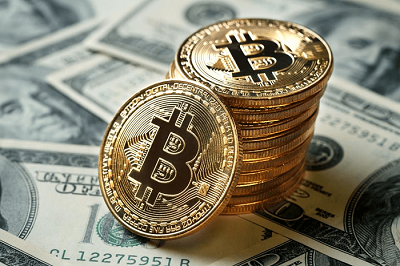The Philippines has always been a very active country when it comes to Bitcoin and cryptocurrency. In 2014, the Philippine Central Bank issued a statement saying that cryptocurrencies are not banned in the country. However, they cautioned the public about the risks associated with investing in them. For more information visit https://bitcoinera.app/.
In 2017, the SEC (Securities and Exchange Commission) of the Philippines issued guidelines for ICOs (Initial Coin Offerings). They said that all ICOs must register with the SEC first before they can operate in the country.
The BSP (Bangko Sentral ng Pilipinas) is also taking steps to regulate cryptocurrencies. In 2018, they issued a circular asking all banks and other financial institutions to stop dealing with businesses that are involved in cryptocurrencies.
Despite all of these regulations, the cryptocurrency industry is still booming in the Philippines. There are many Bitcoin ATMs and exchanges operating in the country. Filipinos have also started using Bitcoin to send money back home to their families.
The Philippine government is still trying to figure out how to best deal with cryptocurrencies. But for now, it seems like they are taking a cautious approach.
Bitcoin’s Repute in the Philippines
Bitcoin’s reputation has been rising in the Philippines over the past few years. The country’s Central Bank has even released a statement saying that Bitcoin is not banned in the Philippines. This is a big change from earlier years when Bitcoin was associated with criminal activity and was not thought of as a legitimate currency.
There are now several Bitcoin exchanges operating in the Philippines, and many businesses accept Bitcoin as payment. The government is also starting to take notice of Bitcoin and is considering regulating it. Overall, the future looks bright for Bitcoin in the Philippines.
Bitcoin’s Future in the Philippines
The Philippines have always been at the forefront of technology and innovation. They were one of the first countries to develop a national ID system and are now piloting a program that could potentially see all government services available online. The country is also home to many call centers and BPOs, as well as a rapidly growing startup ecosystem.
This forward-thinking attitude has also extended to the world of cryptocurrencies. The Philippines was one of the first countries to regulate Bitcoin and blockchain technology and has since become a hotbed for cryptocurrency trading and adoption.
There are now over 2 million people using Bitcoin in the Philippines, with around $40 million worth of BTC traded every month. This makes the Philippines one of the most active countries in the world when it comes to Bitcoin trading.
What’s driving this adoption?
There are a few factors that have contributed to the rapid adoption of Bitcoin in the Philippines.
First, the country has a very large remittance market. There are around 10 million Filipinos working overseas, sending home around $30 billion every year. These workers are often paid in USD but need to convert their earnings into Philippine Pesos (PHP) in order to send money back home.
The process of converting USD to PHP can be expensive and time-consuming, so many workers have started using Bitcoin as a way to send money home more quickly and cheaply.
Second, the Philippines has a very high inflation rate. Inflation was over 6% in 2018, which means that the PHP is losing value rapidly. This has made Bitcoin an attractive investment for many people in the Philippines, as it offers a way to hedge against inflation.
Lastly, the Philippines has a young and tech-savvy population. Over 60% of the population is under 35 years old, and there is a growing awareness of cryptocurrencies and blockchain technology. This has helped to drive the adoption of Bitcoin as new and exciting technology.
What’s next for Bitcoin in the Philippines?
The Philippine government has been supportive of cryptocurrencies and blockchain technology so far, but there is still a long way to go before the country fully embraces these new technologies.
There are currently no regulations in place for cryptocurrencies, which means that there is a lot of uncertainty around their legal status. This could change in the future, as the government has been studying the possibility of introducing regulations.
In the meantime, cryptocurrency adoption is likely to continue to grow in the Philippines. With a large remittance market and high inflation, there is a strong use case for Bitcoin in the country. And with a young and tech-savvy population, it is only a matter of time before more and more people start using cryptocurrencies.
(India CSR)




























